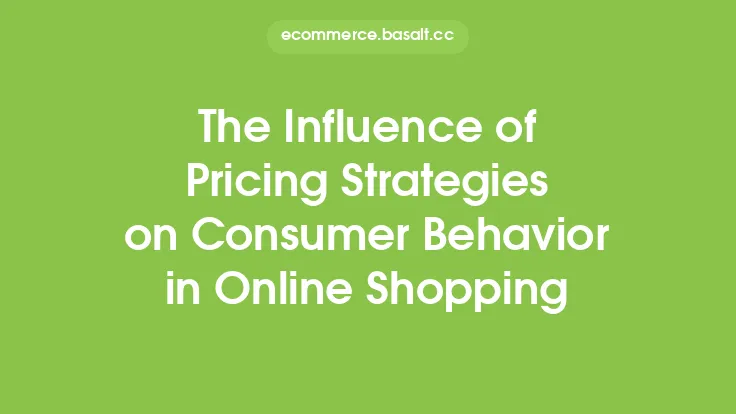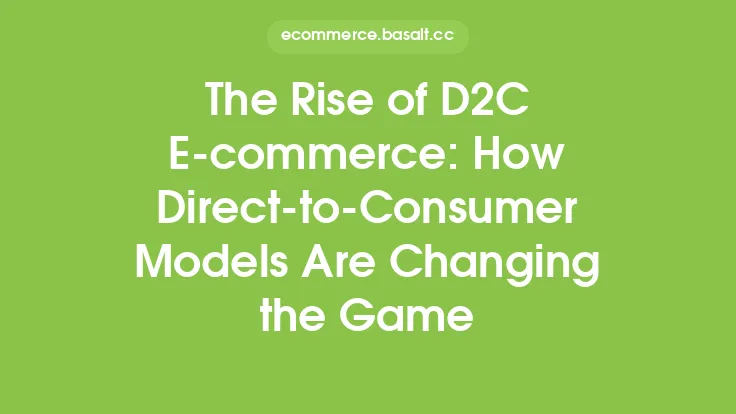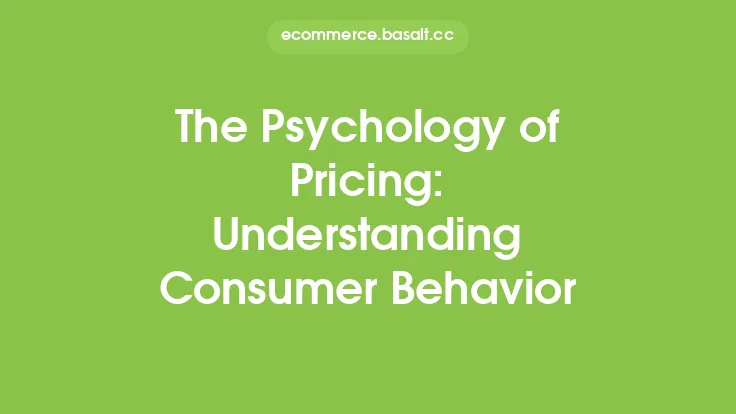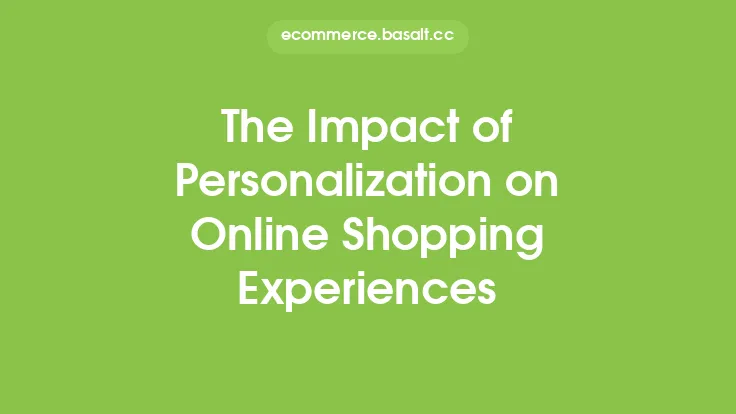The rise of e-commerce has led to a significant shift in the way consumers shop, with online shopping becoming an increasingly popular choice. As a result, understanding the psychology of online shopping has become crucial for businesses to influence consumer choice and drive sales. At its core, the psychology of online shopping is about understanding the cognitive and emotional processes that drive consumer behavior in a digital environment.
Introduction to Consumer Behavior
Consumer behavior refers to the study of how individuals make decisions about what products to buy, how to buy them, and when to buy them. In the context of online shopping, consumer behavior is influenced by a range of factors, including demographics, personality, lifestyle, and cultural background. Understanding these factors is essential for businesses to develop effective marketing strategies that resonate with their target audience. For instance, a business that understands the demographics of its target audience can tailor its marketing efforts to appeal to that specific group, increasing the likelihood of conversion.
The Role of Cognitive Biases in Online Shopping
Cognitive biases play a significant role in online shopping, influencing how consumers perceive and process information. One of the most common cognitive biases in online shopping is the confirmation bias, where consumers tend to seek out information that confirms their pre-existing beliefs about a product. For example, a consumer who is interested in buying a new smartphone may seek out reviews and ratings that confirm their belief that a particular brand is the best. Businesses can leverage this bias by providing social proof, such as customer reviews and ratings, to influence consumer choice. Additionally, businesses can use the scarcity bias, where consumers perceive a product as more valuable if it is scarce, to create a sense of urgency and drive sales.
The Impact of Emotional Appeals on Consumer Choice
Emotional appeals are a powerful tool in influencing consumer choice, as they tap into the consumer's emotional state and create a connection with the product. In online shopping, emotional appeals can be used through imagery, storytelling, and messaging that resonates with the consumer's values and desires. For instance, a business that sells outdoor gear can use imagery of people enjoying nature to create an emotional connection with the consumer and increase the likelihood of conversion. Furthermore, businesses can use the emotional appeal of nostalgia to create a sense of familiarity and comfort, making the consumer more likely to make a purchase.
The Influence of Social Identity on Consumer Behavior
Social identity theory suggests that consumers derive a sense of identity and belonging from the products they buy and the brands they associate with. In online shopping, social identity can be influenced by social media, online communities, and brand messaging that resonates with the consumer's values and interests. For example, a business that sells eco-friendly products can use social media to create a sense of community among its customers, who share a common interest in sustainability. This can create a sense of loyalty and advocacy, as consumers are more likely to recommend the brand to others who share their values.
The Role of Personalization in Online Shopping
Personalization is a key factor in influencing consumer choice, as it creates a sense of relevance and tailors the shopping experience to the individual's needs and preferences. In online shopping, personalization can be achieved through data-driven marketing, where businesses use data and analytics to create targeted marketing campaigns and product recommendations. For instance, a business that sells clothing can use data on a consumer's past purchases and browsing history to recommend products that are likely to be of interest. This can increase the likelihood of conversion and create a sense of loyalty, as consumers feel that the business understands their needs and preferences.
The Impact of Scarcity and Urgency on Consumer Behavior
Scarcity and urgency are powerful psychological triggers that can influence consumer choice, as they create a sense of limited opportunity and encourage consumers to make a decision quickly. In online shopping, scarcity and urgency can be created through limited-time offers, promotions, and messaging that emphasizes the importance of acting quickly. For example, a business that sells concert tickets can use scarcity and urgency to create a sense of excitement and encourage consumers to buy tickets quickly, before they sell out. This can increase the likelihood of conversion and drive sales, as consumers are more likely to make a purchase when they feel that they are running out of time.
The Role of Trust and Credibility in Online Shopping
Trust and credibility are essential components of online shopping, as consumers need to feel confident that the business is reputable and will deliver on its promises. In online shopping, trust and credibility can be established through social proof, such as customer reviews and ratings, as well as through clear and transparent messaging about the business's policies and procedures. For instance, a business that sells electronics can use trust badges, such as SSL certificates and security seals, to create a sense of trust and credibility. This can increase the likelihood of conversion, as consumers are more likely to make a purchase from a business that they trust.
Conclusion
The psychology of online shopping is a complex and multifaceted field that is influenced by a range of cognitive, emotional, and social factors. By understanding these factors, businesses can develop effective marketing strategies that influence consumer choice and drive sales. Whether it's through cognitive biases, emotional appeals, social identity, personalization, scarcity and urgency, or trust and credibility, businesses have a range of tools at their disposal to influence consumer behavior and create a competitive advantage in the online marketplace. Ultimately, the key to success in online shopping is to understand the consumer's needs, preferences, and motivations, and to develop marketing strategies that resonate with these factors. By doing so, businesses can create a loyal customer base, drive sales, and achieve long-term success in the online marketplace.





